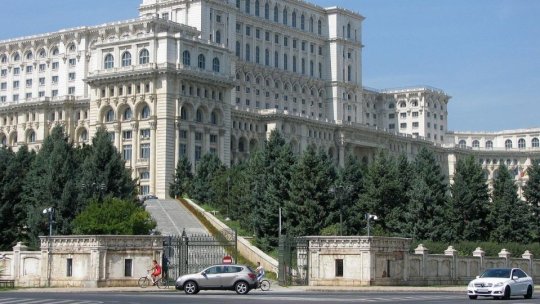Financial Press Review, February 2
Articles from the dailies Ziarul Financiar, Bursa and Curierul Naţional.

Articol de Dinu Dragomirescu, 02 Februarie 2011, 14:51
The pressing need for a more efficient state is a topic covered in all the dailies reviewed today.
Under the headline ‘Negotiations with IMF in a blur. Terms of new arrangement still a mystery’, the Ziarul Financiar concludes from the little information it has that ‘while in the spring of 2009 the objective of the arrangement was to ensure a stable financial system and reduce the budget deficit, the emphasis is now on a more efficient state’.
‘The new precautionary arrangement will be focused on reforms, privatization and liquidation of state companies’, the daily reads.
‘It’s not just staff restructuring’, Romania’ representative at the IMF Mihai Tănăsescu stated.
The Curierul Naţional prints an article entitled ‘Three mines to close until 2018’ which reads that ‘the biggest state debtor, the National Hard Coal Company, is still a topic of discussion with the IMF representatives’.
‘The company owes the state over one billion euro. (…) The authorities are looking for ways to retrain the thousands of mineworkers that will be laid off’.
Under the headline ‘IMF wants liberalization of prices and privatization of power’, the daily Bursa reads that ‘Romanian authorities will have to regulate these prices for the population and state institutions only, not for retailers as well’.
This is an older demand of the European Commission, the daily reminds us.
‘Sources with the Ministry of Economy claim that the IMF has tackled this problem because our country is losing strategic investors because of how it regulates prices. (…)
The intervention of the IMF is not random, since we have lost three strategic investors (‘RWE’ Germany, ‘GDF’ Suez France and ‘Iberdrola’ Spain) in the project to erect units 3 and 4 at Cernavodă’, the Bursa reads.
‘A good project in itself’, the Ziarul Financiar prints about the two reactors.
‘Apart from technical details, an essential thing has disappeared in the past few years: investors’ trust in the Romanian state, the spokesperson of a European power giant claims’.
The Ziarul Financiar also discusses efficiency in an article entitled ‘By the end of the year 180 hospitals will disappear from statistics. Will those still standing offer better conditions?’
‘Although in the past few years funds for health care have doubled, including those allocated to hospitals, the quality of the health care sevices has not improved, and the system has been shaken by tragedies like the one at the Giuleşti Maternity.
‘This occasion revealed managers that have been running hospitals for over 20 years’, the daily reads.
The same daily prints Adrian Vasilescu’s opinion under the headline ‘The bitter awakening’, which discusses the lack of a project meant to restructure the economy and society at large in our country.
‘Another economy, even in countries with normal markets, would have definitely collapsed for good if it had endured such waste, contempt for performance and lack of preoccupation for efficiency and productivity.
‘We have proven that we have what many countries lack: a certain innate vitality’.
The Ziarul Financiar prints an article entitled ‘570 000 unemployed left statistics in 2010. Nobody knows what happened to them’.
The article quotes statistics which show that ‘the real unemployment figure in Romania is above 6.9 percent’, Liviu Voinea, teacher at the Bucharest Academy of Economic Studies and Group of Applied Economics manager.
In fact, he claims, ‘the employment figure is not a relevant factor, but the 57 percent occupation rate which includes both employees and freelancers’.
‘Romania’s real problem are the 4 million people who are able to work, but do not contribute to the budget’, Voinea also said.
Translated by: Gabriela Lungu
MA Student, MTTLC, Bucharest University









